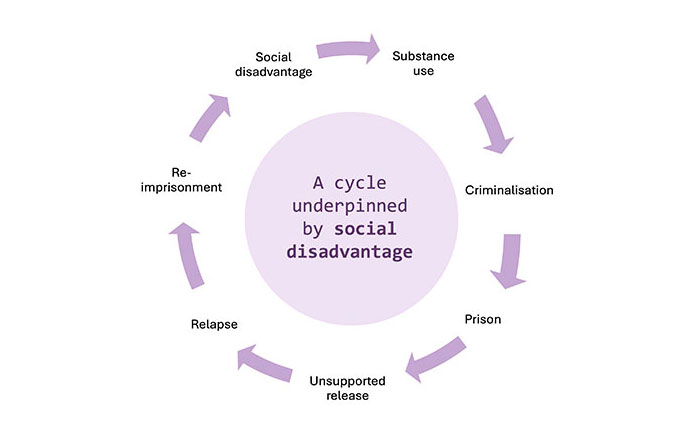Achieving the final phases of hepatitis C elimination using innovative models of care
Direct acting antivirals have revolutionised hepatitis C care with cure rates of over 90%. Unfortunately, many people in Australia and globally are not yet treated. Around 290,000 people worldwide die each year from hepatitis C. Around 120,000 Australians are yet to be treated.
Our five year $5M NHMRC-funded synergy grant will identify innovative models of care that engage with the people at greatest risk of hepatitis C. The goal: to ensure no-one misses out on hepatitis C care in Australia and globally.
The project began in 2024 and is currently ongoing.
Identifying innovative approaches
The overarching aim of this grant is to engage around 100,000 Australians living with hepatitis C in care.
Using a multidisciplinary approach, we aim to:
- improve our understanding of the structural, social and ethical issues that constrain or enable healthcare engagement among key populations
- help affected populations to engage in care.
The work of the grant is divided into 3 themes.
Theme 1 is based on 4 interventional studies. These studies are undertaken in non-traditional and non-healthcare service settings attended by key populations. We'll identify if new, simplified models of care in these settings increase accessibility to and uptake of hepatitis C care for these populations.
Theme 2 uses qualitative methodologies and methods. It identifies critical factors affecting service acceptability and trust by key populations in these settings.
Theme 3 assesses sustainability by modelling the cost and cost-effectiveness of our work.
Developing new models of care
We’ll undertake our work with input from affected communities. A community engagement group (CEG) has been established. CEG members work with study investigators, informing all aspects of the research.
The goal is to develop new models of care for hepatitis C that are:
- effective, acceptable, cost-effective and sustainable
- able to increase hepatitis C testing and treatment in key populations.
Our work will contribute to Australia’s efforts to eliminate hepatitis C as a public health threat by 2030.
It will also inform global elimination efforts, providing critical data for World Health Organization guidelines on simplified models of care in community settings.
Partners
Funding partners
NHMRC
Collaborators
- AIVL
- Hepatitis Australia
- Harm Reduction Victoria
- Liverwell
- ASHM
- QuIHN
- PBHRWA
- St Vincents Hospital
- Bath University
- Barwon Health
- Kirby Institute
- Sydney University
- University of NSW
Project contacts
Project team

Professor Margaret Hellard AM
Chief Investigator A

Professor Alexander Thompson
Chief Investigator
St Vincent’s Hospital, Melbourne

Professor Mark A Stoové
Chief Investigator

Associate Professor Kari Lancaster
Chief Investigator
UNSW

Associate Professor Alisa Pedrana
Chief Investigator

Associate Professor Nick Scott
Chief Investigator

Professor Joseph (Joe) Doyle
Chief Investigator

Troy Combo
Chief Investigator

Dr Rebecca Winter
Chief Investigator

Tim Spelman
Chief Investigator

Professor Paul Dietze
Program Director, Disease Elimination; Professor and Program Leader, National Drug Research Institute (NDRI)

Dr Jacqui Richmond
Program Manager, Workforce Development and Health Service Delivery, EC Australia

Dr Amanda Wade
Post-Doc

Dr Shelley Walker
Adjunct Research Fellow

Dr Sophia Schroeder
Senior Research Officer

Dr Daisy Gibbs
Evaluation Officer

Sabrina Berg
Research Assistant

Samara Griffin
PhD student/Research Assistant

Dr Farah Houdroge
Research Officer




